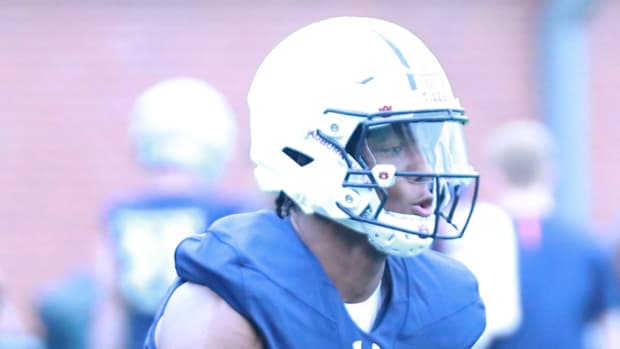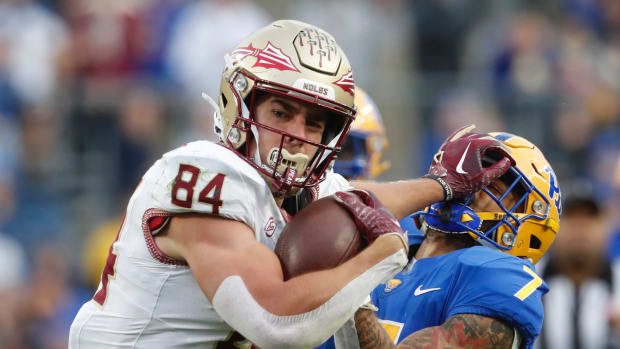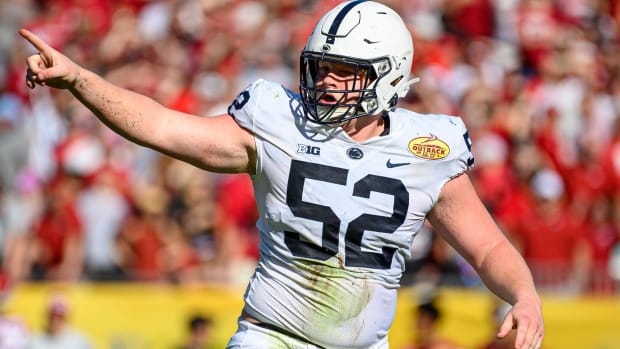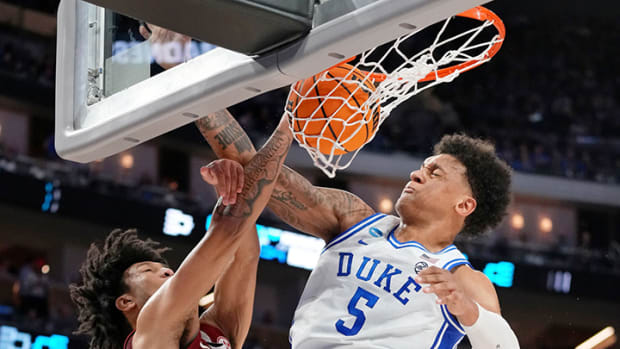User's guide to the new College Football Playoff
Major college football finally has a playoff. It's called the College Football Playoff.
Really.
Here's how it will work and what you need to know.
THINK BCS
Those involved in putting the playoff together and now managing it cringe when it's suggested that the new system is BCS 2.0, but to understand how it works, it helps to keep in mind how the Bowl Championship Series worked.
In the BCS, there were four, and then later five games played each season. Only one, the national championship game, had anything to do with the national championship.
The others were glitzy bowl games played in showcase stadiums that - hopefully - had compelling matchups. Six conferences had automatic bids to those games, and other teams could earn automatic entry.
The new system will have a total of seven games, including two national semifinals and a final that will determine the champion. The four other games will be glitzy bowl games played in showcase stadiums that - hopefully - will have compelling matchups. There will no longer be automatic bids for six conference champions, as was the case for the BCS. Now five conferences (the Big Ten, Big 12, SEC, ACC and Pac-12) each have guaranteed a spot for their champions in either the semifinals or one of the four glitzy bowls. There will also be a guaranteed spot for the best team from the five FBS conferences (American Athletic Conference, Mountain West, Sun Belt, Conference USA and Mid-American).
PICKING THE TEAMS
A 13-member selection committee will pick the teams to play in the semifinals, and set some of the matchups in those other bowl games. The committee will also release a weekly top 25 starting, Oct. 21. On Dec. 7, the matchups will be revealed.
The committee members:
-Chairman Jeff Long, athletic director, Arkansas
-Barry Alvarez, athletic director, Wisconsin.
-Lt. Gen. Mike Gould, former superintendent of the United States Air Force Academy.
-Pat Haden, athletic director, Southern California.
-Tom Jernstedt, former NCAA executive vice president.
-Oliver Luck, athletic director, West Virginia.
-Archie Manning, former Mississippi quarterback.
-Tom Osborne, former Nebraska coach.
-Dan Radakovich, athletic director, Clemson.
-Condoleezza Rice, Stanford professor and former secretary of state
-Mike Tranghese, former commissioner of the Big East Conference.
-Steve Wieberg, former college football reporter, USA Today.
-Tyrone Willingham, former head coach of Notre Dame, Stanford and Washington.
WHERE WILL THE GAMES BE PLAYED?
The semifinals will rotate through six bowl games: the Rose (Pasadena, California), Orange (Miami), Sugar (New Orleans), Fiesta (Glendale, Arizona), Cotton (Arlington, Texas) and Peach (Atlanta). When those games don't host a semifinal, they will put on one of the glitzy bowls. The semifinals this season will be played in Pasadena and New Orleans.
The championship game will be bid out like the Super Bowl and move all over the country. The first one will be played at AT&T Stadium in Arlington, Texas, home of the Dallas Cowboys and the Cotton Bowl.
WHEN?
Three games will be played back-to-back-to-back on New Year's Eve and there will be another tripleheader on New Year's Day. Adjustments will be made in the future if Dec. 31 or Jan. 1 falls on a Sunday so as to not conflict with the NFL.
The championship game will always be played on a Monday, at least a week after the semifinals.
This season the semifinals will be on Jan. 1. The Rose will kick off around 5 p.m. EST. The Sugar around 8:30 p.m. EDT. The championship game in Texas will be played the night of Jan. 12.
The Rose and Sugar bowls will always be played on New Year's Day, so in most seasons the semifinals will be played on New Year's Eve.
TV
All these games will be shown on ESPN. It reportedly paid about $7.2 billion for the entire package.
WHERE DOES ALL THAT MONEY GO?
About 85 percent of it will go to the Big Five conferences. The other five FBS leagues will split the rest, but don't feel too badly for them. Most will be making about five times the amount they made with the BCS.
HOW LONG BEFORE THIS SYSTEM CAN BE CHANGED?
The conferences and ESPN worked out a 12-year deal based on a four-team playoff format. So it seems to be locked in for 12 years. But the structure is there for it to grow, so stay tuned.




